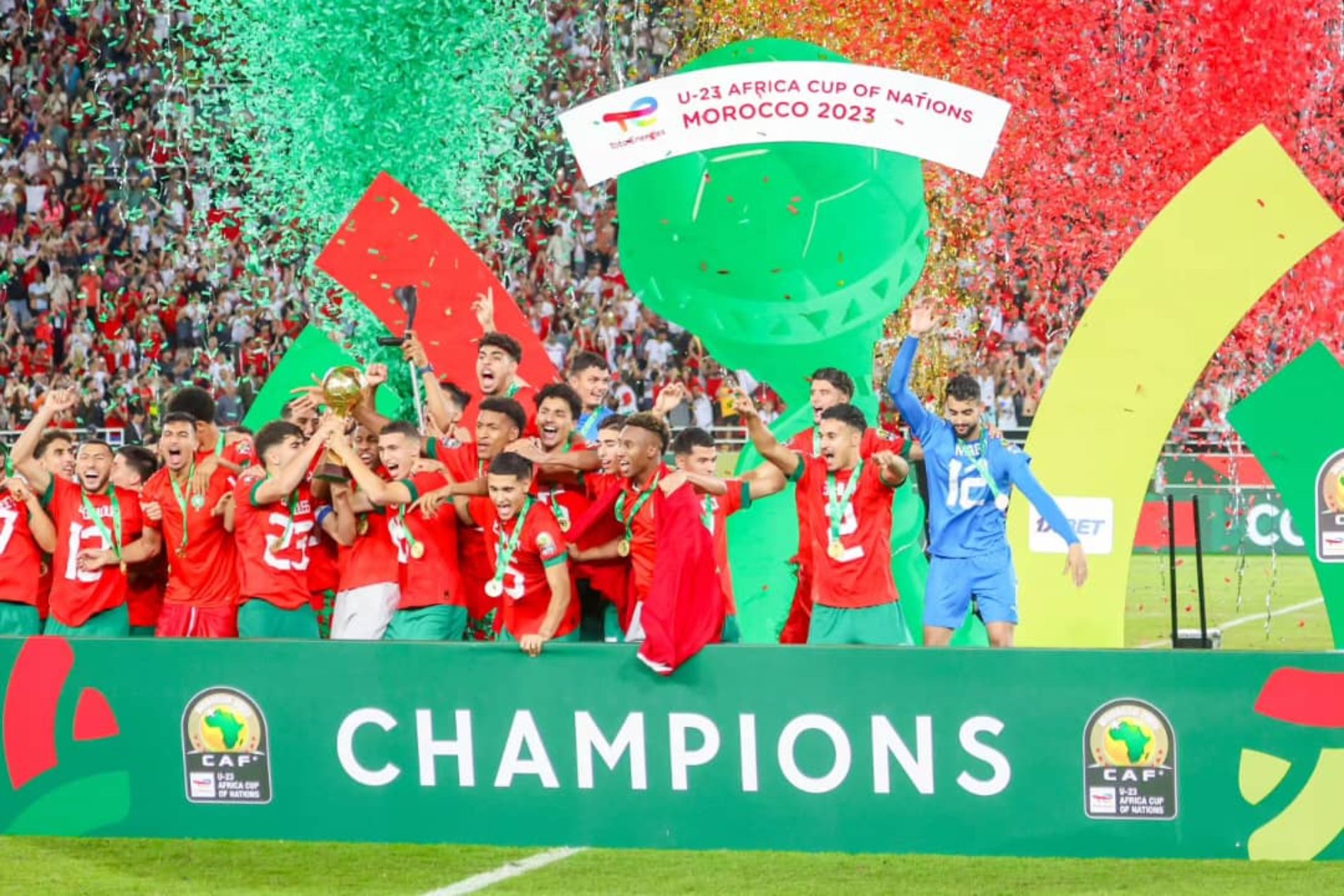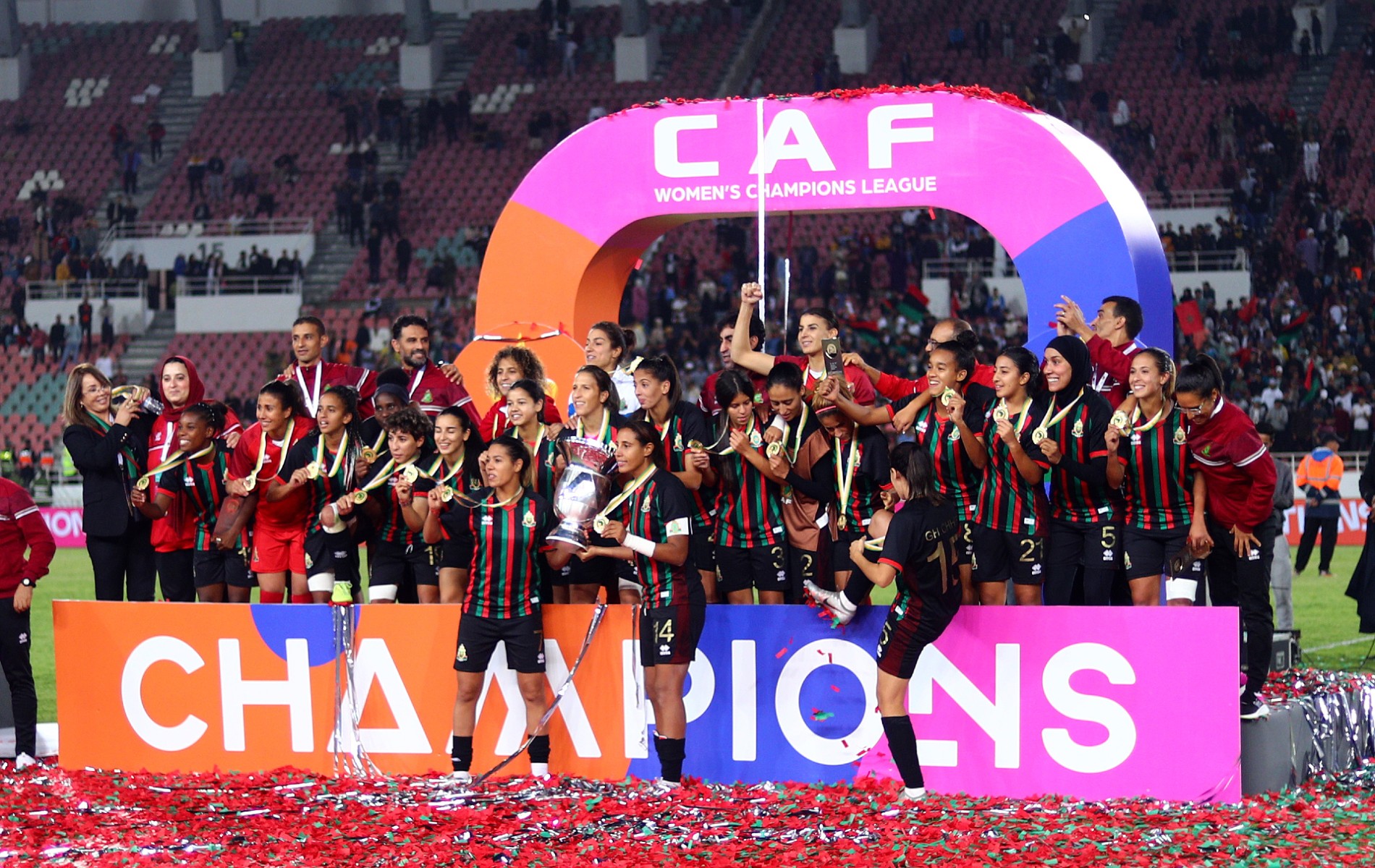Latest News
Morocco profiting from King Mohammed VI’s sports investments at Women’s World Cup

The excellent outing of Morocco on global football stage have continued to generate huge international credits to the King Mohammed VI of Morocco following his impactful reign on turning around the fortune of sports in Africa.
Since the celebration of the Throne Day on Sunday, his Kingdom, revered as the most sports-inclined head of government in Africa, has seen the country moved from one level of accomplishment to another, including at the on-going Women’s World Cup in Australia and New Zealand.
Virtually every Moroccan contacted gives credit to the monarch for the growing influence of Moroccan football. While the men’s team became the first African and Arab team to get to the semi-final of the World Cup at Qatar 2022, the women’s team now also has a claim to a slice of African and Arab records.
Morocco are the first African debutants to scale the group stage hurdle at the Women’s World Cup, despite being pummelled in their opening match.
Paradoxically, Germany which beat them in the opening match could not advance while Morocco summoned enough courage to scale through.

Everything now turns to a good return on investment for the monarch who at age 13 as a prince, was in the reception team of the victorious Moroccan side at the 1976 Africa Cup of Nations. Moroccans easily credit him for their football successes.
The U23 coach, Isaam Charai at the post match conference pointed out the monarch as the inspiration for the astronomic rise in Moroccan football standard.
To those who may not know, the coach’s statement could be considered an act of flattery. But it is not. The magnificent Mohammed VI Football Complex in Rabat will convinced doubters.
The centre likened to the Clairefontaine in France or St George’s Park in England, was the beginning of an overhaul of the North African nation’s football structure.
No country would have had such facility and will not excel in sports. It was at the complex that Moroccan teams camp. A visit to the Mohammed VI Football Complex at the Sale area of Rabat will reveal a royal state of the art facility which the monarch has given to the kingdom.
One of the items that catches attention at the vast entry lounge of the unique football complex is a huge framed picture of the reception accorded the 1976 Africa Cup of Nations winning team of Morocco.
All the players in the picture wore maroon coloured suits. In the middle of the group picture is a young boy, then 13. He wore a blue suit and a stripped tie.
That was the then Prince Mohammed who is today, King Mohammed VI. Little wonder, Charai, the head coach of Morocco’s U23 team, attributed their success to King Mohammed VI. “We lifted this cup for King Mohammed VI,” Charai proudly declared.
 The coach emphasized that their triumph was not a stroke of luck but a result of the team’s discipline and unwavering focus.
The coach emphasized that their triumph was not a stroke of luck but a result of the team’s discipline and unwavering focus.
King Mohammed’s association with sports, especially football therefore pre-dated his ascension to the throne on 23 July 1999 upon the passing on of his father, King Hassan II.
Football in Morocco has blossomed under King Mohammed VI. Last year, Moroccan clubs were holders of both the CAF Champions League and the CAF Confederation Cup. By extension, the CAF Super Cup.
Women’s football received a big boost even before the Moroccan women’s team’s debut at the FIFA Women’s World Cup.
Prior to King Mohammed VI reign, the Moroccan women’s team was like a punching bag in the African Women’s Championship.

For instance, the team was pummelled 8-0 by Nigeria on 17 October 1998. But only last year, Nigeria’s Super Falcons struggled in vein and were eliminated by Morocco in the semi-finals.
King Mohammed VI was born on 21 August 1963, the day the Nigeria Football Federation (Founded 1933, though they seemed not aware) clocked 30.
He is not the only royal person interested in sports. The imposing Prince Moulay Abdellah Stadium in Rabat is named after an uncle of King Mohammed VI, indicating the royal family’s strong obsession for sports.
Another indication could be gleaned from the picture of the trophy presentation to Real Madrid when the Spanish giants won the 2014 FIFA Club World Cup.
The trophy was presented by Prince Moulay Al Hassan, the Crown Prince of Morocco. At the time he was making the trophy presentation, he was 11 years old.
When in 2013 Raja Casablanca emerged as runners-up at the FIFA Club World Cup, following their 2-0 loss to Bayern Munich they were rewarded with a futuristic complex.
For their performance, His Majesty King Mohammed VI, the sports inclined ruler of Morocco opted to reward the club with structures instead of pecuniary which is the norm in Africa.
A football academy located on a 7.5 hectares of land in the district of Ain Jemâa, in Bouskoura area of Casablanca is the remarkable gift to Raja Casablanca. The benefits are for ever.
In a short documentary by BBC Sport Africa, the changing face of women footballers in Morocco was highlighted.
For instance, Sporting Club Casablanca is a Moroccan female football club that started four years ago. According to Moad Oukacha, the President of Sporting Club Casablanca, Morocco knew they had a lot of areas in need of improvement.
So, three years ago, Morocco launched a professional football league for women. Each team got subvention from the Royal Moroccan Football Federation.
Oukach justified the payment, “They will automatically feed the national team with players to make it the best in Africa and one of the best in the world.”
He revealed that the club has players from Nigeria, Mali, Burkina Faso and Cote d’Ivoire. Each player earns a thousand US dollar a month.
One of the players spoke glowingly about the development. Hear Chaimaae Akrim, a defender at Sporting Club Casablanca: “Our club gave us stability and helped us develop our skills.
Another player, Yasmin Mrabet, a defender remarked: “Here, I really feel like a professional footballer. The investment that has yielded good results”.
The king is reported to be a keen football fan whose investment has seen Morocco soaring high in football. According to BBC, Morocco has an annual budget of $65 million for women’s football.
Hear the national women’s team coach Reynald Pedros: “When I arrived, we discussed the project. To have the women’s national team regularly qualify for WAFCON and World Cup.
“To reach the World Cup quarter-finals is our ambition.”
